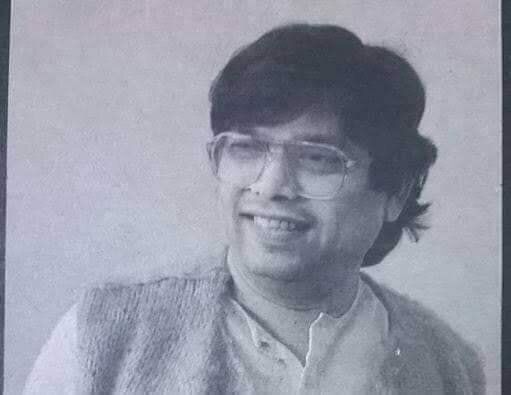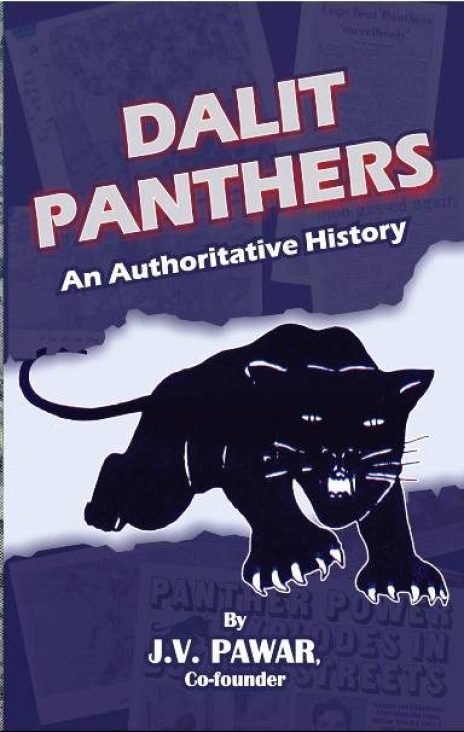Raja Dhale, who passed away on July 16 at the age of 78 in Mumbai, was one of the co-founders of the Dalit Panthers along with JV Pawar, Namdeo Dhasal and Arun Kamble. They were inspired by the Black Panther Party that took on racial discrimination against the African-American community in the United States. In India, the Dalit Panthers were a group of young men espousing Ambedkar and Phule’s ideology. Dhale was one of the firebrand leaders known for his oratory skills. A controversial essay titled “Kala Swatantrya Din (Black Independence Day)”, published on the 25th Independence Day of India in 1972, written by Raja Dhale, gave the movement statewide recognition. Following the publication, Dhale and others organised a book burning of Hindu books and scriptures.
Dhale later disavowed the term “Dalit”, saying that it was not his identity. He distanced himself from the Dalit Panthers citing ideological differences with the rest of the leaders, though they remained cordial. He later joined the Bharipa Bahujan Mahasangha, a party floated by Prakash Ambedkar, the grandson of BR Ambedkar. He contested the parliamentary elections in 1994 and 2004 on their ticket. Before 1972, Raja Dhale was also associated with the “little magazines movement” and was the editor of Yeru.
The Dalit Panthers came together to assert Dalit-Bahujan identity at a time when atrocities against them were on the rise in Maharashtra. All these years later, caste-based discrimination and atrocities persist, and have taken new forms under the aegis of right-wing ideology. In such times, it is important to revisit significant moments of Dalit assertion — such as the Dalit Panthers.
The following excerpt from JV Pawar’s Dalit Panthers: An Authoritative History is an account of what happened after the publication of the Raja Dhale’s essay and the book burning that followed.

Dr Ambedkar Vichar Darshan Association of Patkar College, Goregaon, hosted a seminar on Raja Dhale’s controversial article in Saadhanaa on 9 October 1972. The chief organizer was Prof S.S. Yadav and those invited on the occasion were Jana Sangh MLA Prof G.B. Kanitkar, socialist MLA Mrinal Gore, Prof Gopal Dukhande from the Yuvak Kranti Dal, Buddhist writer Sharad Mahatekar and Raja Dhale. Dalit writer Prof Keshav Meshram presided over the discussion.
Speaking on the occasion, Dhale spoke aggressively, challenging his detractors. He accused them of being perverts and said that he was willing to be hanged till death if his views were proved meaningless. He criticized the holy books, including the Vedas of Hindus, pointing out that they were composed by non-Aryans in Prakrit script and later translated into Sanskrit by Brahmins. He rubbished the claim of Hindus that the Vedas were not written by human beings but were divinely ordained. He added that the epics Ramayana and Mahabharata were written by Vyas and Valmiki, respectively, both of whom belonged to the Koli caste.

Referring to the anger of Shiv Sena chief Bal Thackeray over Buddhist youths not showing respect towards holy books of Hindus, he said that Buddhist youths would gather at the next Shiv Sena rally in Shivaji Park to make a bonfire of such holy books.
The audience applauded Dhale and raised slogans in his honour. Mrinal Gore spoke in support of what Dhale had written in Saadhanaa, saying that Dhale intended not to insult the national flag but to draw attention to the plight of Dalits. Sharad Mahatekar, too, voiced his support for Dhale and asked why action had not been taken against Anand Hardikar, who in his book on Mahatma Gandhi had stated that the national flag should be trampled because it contained the Ashok Chakra incorporated by Dr Ambedkar. G.B. Kanitkar had no answer to this question and could not counter the arguments made in favour of Dhale. Gopal Dukhande observed that in the past, empathizers like Mahatma Phule had led the struggle against inequality and that it was time the victims going through the horrible experiences took it forward themselves. Meshram presided over the seminar with grace.
After the seminar, all eyes were on Shivaji Park, where the bonfire was planned.
Dhale became a much-sought-after leader, with several organizations in Mumbai and suburbs vying with one another to host his talks. On 21 October, “Apna Bazar Parivar” invited Dhale to speak in its Sarfare series of lectures. The programme received an overwhelming response from youths. A group of youths shouted slogans against Dhale, accusing him of insulting Sita – the wife of Ram in the epic Ramayana. The police personnel present at the venue drove away the agitators. The subject of the lecture was Dhale’s controversial article and it wasn’t the organizers but Namdeo Dhasal who introduced Dhale to the audience. Dhale delivered a highly provocative speech and reiterated that the holy texts of Hindus, which were the root cause of atrocities against Dalits, would be burnt down in protest. He was emerging as the leader of the Dalit Panther. However, in his enthusiasm, he also declared that he would launch a new social organization committed to the thoughts of Dr Ambedkar. I was surprised, because the Dalit Panther was an Ambedkarite organization and there was no need for another outfit. I did not ask Dhale or Dhasal about it, for the social atmosphere was so charged with the launch of the Dalit Panther that there was no scope for a new organization to take shape. Besides, Dhale himself realized this was the case and started saying publicly that the Dalit Panther was an organization committed to the thoughts of Dr Ambedkar.
Religious hostility mounted and there used to be riots wherever Dhale or Dhasal addressed public meetings. Activists of the Shiv Sena used to lead the riots, apparently under instructions of their party chief.
One such riot broke out on 23 October 1972 in Kalyan during a lecture at Nagar Mandir. The speakers were Dhale and Dhasal. Shiv Sena activists pelted stones and soda-water bottles to disrupt the meeting. Youths in the audience retaliated. The police arrested nine youths: Murlidhar Ambre, Hanuman Shinde, Pravin Pandya, Kishor Tekia, Baliram Bharade, Shivaji Jagtap, Ramesh Salunkhe, Ram Bhepate and Tatya Gite. It was the first riot that Dalit Panther was caught in.




